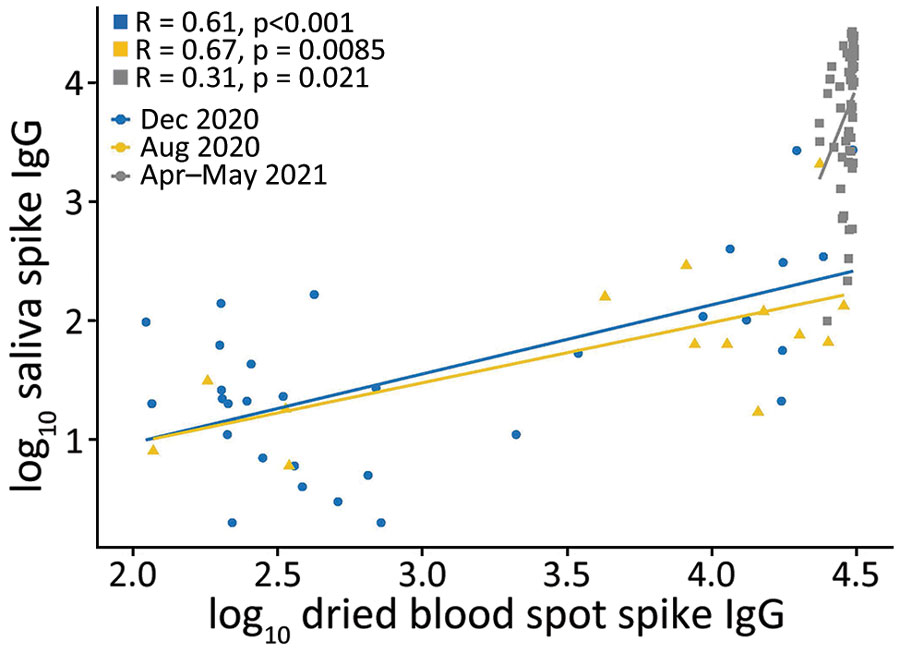Volume 29, Number 9—September 2023
Dispatch
Evaluating SARS-CoV-2 Saliva and Dried Blood Spot Surveillance Strategies in a Congregate Population
Figure 1

Figure 1. Quantitative comparison of spike IgG in saliva and dried blood spots among 79 study participants, US Naval Academy, Annapolis, Maryland, USA, December 2020–May 2021.
Page created: July 31, 2023
Page updated: August 20, 2023
Page reviewed: August 20, 2023
The conclusions, findings, and opinions expressed by authors contributing to this journal do not necessarily reflect the official position of the U.S. Department of Health and Human Services, the Public Health Service, the Centers for Disease Control and Prevention, or the authors' affiliated institutions. Use of trade names is for identification only and does not imply endorsement by any of the groups named above.